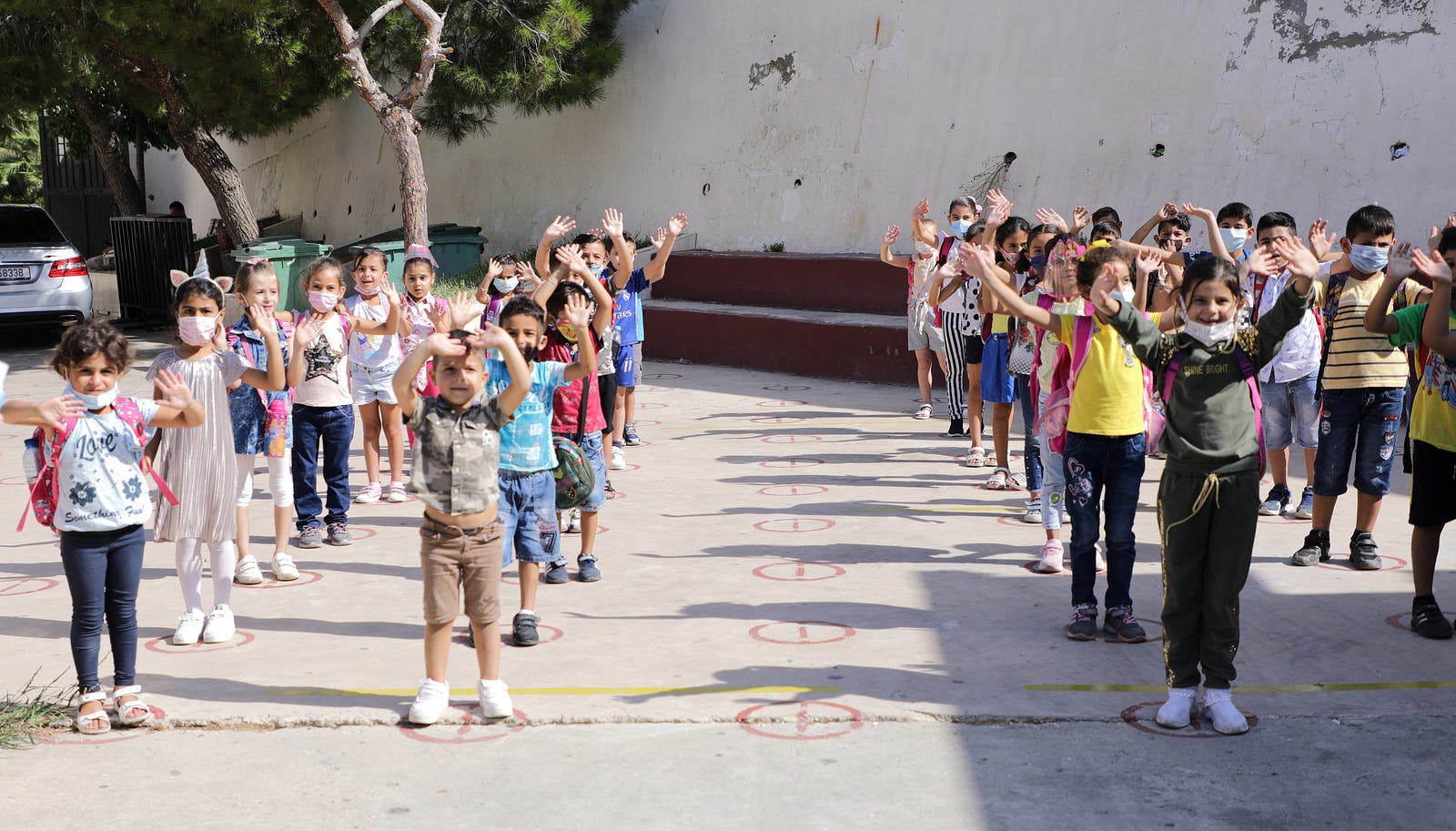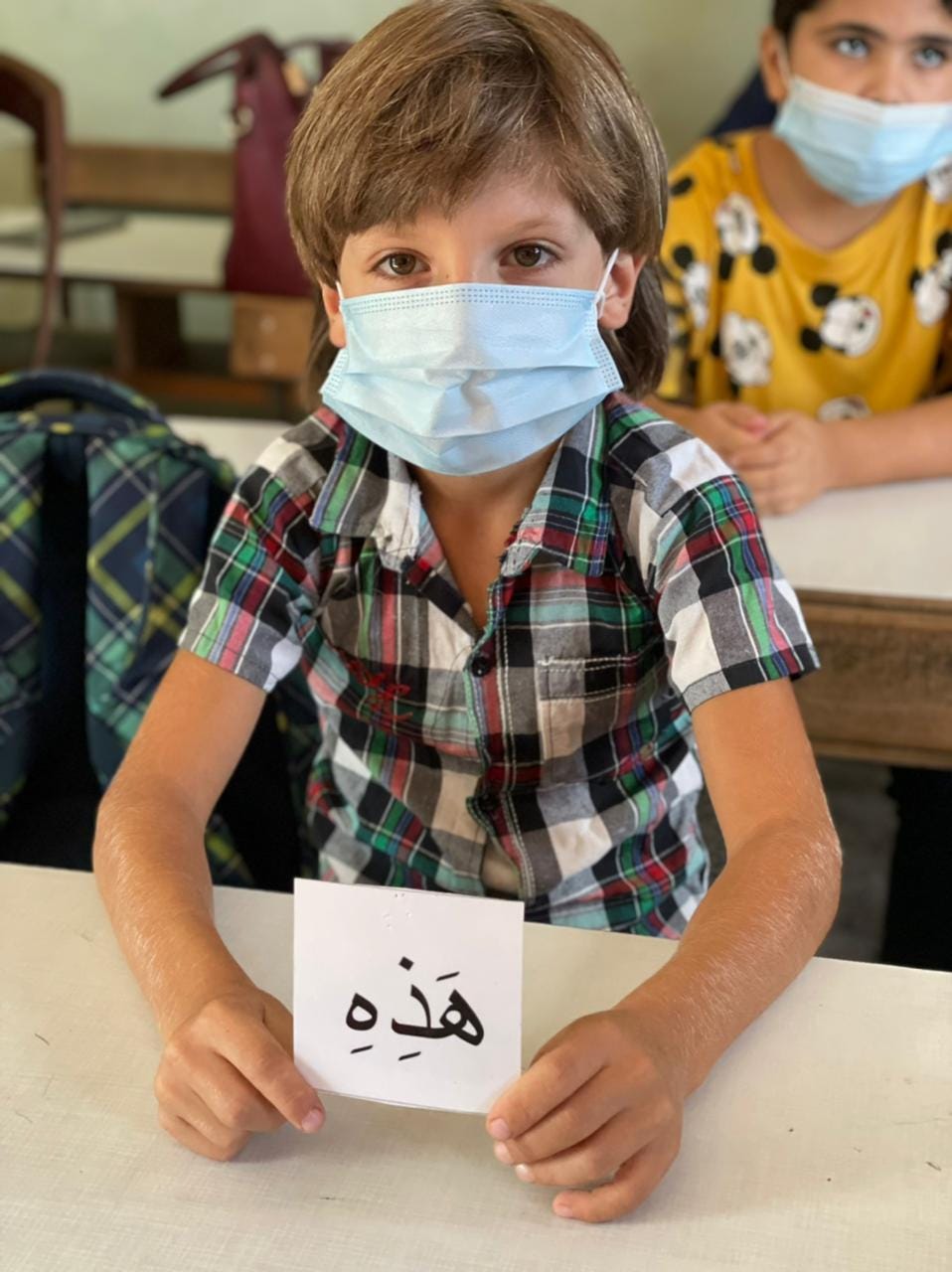-
What We Do
- WHERE WE WORK
-
About Us
 Welcome Message from Carol Jenkins
Welcome Message from Carol JenkinsFor more than 90 years, World Learning has equipped individuals and institutions to address the world’s most pressing problems. We believe that, working together with our partners, we can change this world for the better.
On my travels, I’ve had the opportunity to meet with many of those who have joined us in this mission. In Baghdad, we’ve trained more than 2,300 Iraqi youth who are already giving back at home. In London, our partners in the TAAP Initiative strongly believe that we are all responsible to practice inclusion. And in Vermont, our Experiment in International Living and School for International Training participants prove every day that they have the tools and the determination to change the world.
Please join us in our pursuit of a more peaceful and just world.
- Get Involved
Media Center > Story
QITABI 2 Helps Lebanon’s Ministry of Education Open 302 Public Schools to Prepare 30,000 Students in Summer 2021
April 6, 2022

On a hot August morning in summer 2021, more than 50 students between the ages of six and 12 gathered on the sidewalk next to the locked doors of a small primary public school in the outskirts of the Bekaa Governorate. Students walked around smiling, eagerly waiting for 8 o’clock when the principal would unlock the school doors. When asked, “Are you happy to attend summer school?” one student excitedly shared, “We like this summer school,” while another added, “We see our friends and learn new things!”
Right after the school principal arrived and opened the doors, the students hurried toward the entrance, formed a straight line, and eagerly marched into school. It was strange to see kids so excited about going to school in the summer. However, this was not a typical summer nor a typical year.
During 2019 and 2020, the COVID-19 pandemic disrupted everyone’s lives. Lebanon’s Education Ministry called for school lockdowns. Nationwide, students stayed home and suffered academically. Additionally, during those two years, the country faced unexpected challenges, including the devastating August 4 Beirut port blast, loss of electricity, and escalating financial crises from rising fuel and goods prices, and local currency devaluation. All these weighed heavily on everyone’s minds, including teachers, parents, and students.

Academic and emotional intervention and support were most needed, especially for kids.
In summer 2021, World Learning’s QITABI 2 proposed opening a summer catch-up program with the Ministry of Education. The free-of-charge summer program served students from all walks of life, including disadvantaged communities and low-income families. Nationwide, 302 public schools opened their doors to students in cities, towns, and small villages.
Fighting the hot summer sun, students still came to school on foot, tuk-tuks, cars, and bicycles. Children felt excited to finally return to school and interact with kids and teachers in a familiar and safe environment.
In collaboration with the Ministry of Education and Higher Education (MEHE) and the Center for Educational Research and Development (CRDP), and with support from USAID, QITABI 2 academic and Social-Emotional Learning (SEL) specialists designed the summer recovery program curriculum for Arabic, English, French, Mathematics, and SEL.
World Learning’s QITABI 2 team provided training to 100 coaches and supported the training rollout to 1,100 teachers. The project’s learning facilitators provided further teacher support by conducting weekly field visits to all the participating schools. Additionally, the project distributed resource CDs to teachers. Supported by the project SEL team, the ministry instituted a daily SEL session to inspire social and emotional interactivity and positively impact the students’ well-being.
A public school principal in southern Lebanon stated, “The summer school represented a transition from the previous academic year, 2020–21, and an emotional, logistical, and academic preparation for the upcoming year, 2021–22.” He added, “We thank QITABI 2 for the summer school program.”
Because the Lebanese pound lost 90% of its value, principals, teachers, and ministry administrators worked for humble pay. Yet, with needed support from World Learning and QITABI 2, all educators put their hands together and provided dedicated efforts to make a difference in a child’s learning and wellbeing in the summer of 2021.





